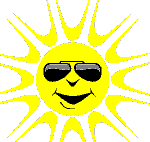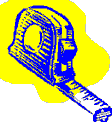|
A good dictionary
is one of the basic tools in study. You use the dictionary
to clear up conflicting definitions and overcoming misunderstood words
and symbols.
The quality of the dictionary and the proper use of it
can make a huge difference to understanding words and therefore texts.
A dictionary is of course a book listing words of a language
and their definitions or a specific subject. It gives the
meaning or meanings of each word listed, the pronunciation, the parts of speech,
and word origins.
A dictionary, to be of any use, has to be accurate and
complete. It has to contain the information needed without omitting definitions
or giving too short or incomplete explanations. Hopefully it would be free of
grammatical errors. Word origin information is very useful. That is a statement of where
the word comes from, the original meaning. How the word is used in a sentence
would be found in the larger dictionaries.
Another point to watch is that the words used to define
a difficult word should be simpler words.
Some dictionaries seem to assume the reader knows all the all the long and difficult words - except perhaps this one
he is looking up. In other words, they are out-gradient and often source of new
misunderstoods and a lot of extra work and hardship on the students using them.
In the English language there exists many brands of dictionaries. In other languages the situation may be different. But the student
should take great care in choosing a dictionary that he finds easy to work with and which
gives him enough information. This depends on his vocabulary and literacy level
to a large extent. Using the wrong dictionary can make study much harder and
extend the time needed to complete a course.
 |
Word Chain:
The definition of 'Chimney' contains the word 'Fume' the student needs
to look up. 'Fume' uses the word 'Atmosphere' that needs complete
understanding;
and 'Atmosphere' used the word 'Oxygen'. The student has to go back up
and clear each definition. Then finally clear
'Chimney' to conceptual understanding. |
Word Chains
If the student finds himself spending a lot of time
looking up definitions within definitions he may be using a dictionary that is
too complex. He gets into the phenomena we call word chains. One definition
contains 3 words the student doesn't understand and each of these words have to
be looked up. They can in turn contain new misunderstood words, that have to be
looked up, and this can go on for some time before the original word is cleared
and no misunderstoods are left behind. Occasionally this has to be done; and the
rule is, the student should never leave behind words he doesn't understand. But the
other way to go is to find another and simpler dictionary that leads to fewer
of these word chains.
For instance, the type of dictionaries called college dictionaries
("college" is part of the name) are usually quite
complicated and out-gradient to most students.
Sometimes one finds scientific descriptions for simple words,
such as "Bird" instead of stating it in simple terms and perhaps
showing a picture. Thus sometimes a beginner's dictionary is more to the point. If
the beginner's dictionary doesn't cover derivation, a more advanced dictionary
can be consulted for just the derivation.
Only if a student seems to be doing fine with a more
advanced dictionary should he routinely use it. After all, the more advanced
dictionary does contain more information.

|
Choose a dictionary
that
doesn't routinely lead
to word chains. |
Recommended Dictionaries
Here are some recommended English and
American language dictionaries:
Webster's New World Dictionary for Young Readers: This is
a good basic dictionary in the American language, except it doesn't contain
derivations; they have to be looked up separately in a larger dictionary.
Oxford American Dictionary: This one is more advanced than the one
above but simpler
than the "college" dictionaries.
The Random House College Dictionary: This is a college dictionary and of a higher gradient
than the two above. It contains a fair amount of slang and expressions, which
can be useful. It also contains derivations.
World Book Dictionary: Another recommended two volume dictionary would be The World Book Dictionary. It
uses simpler words to define difficult words as should be the case for all
dictionaries, sentences showing current usage of the word the most common one
shown first, and many pictures to illustrate.
The list goes on.

|
 |
|
Dictionaries have to be chosen according
to the student's level of literacy. |
Growing Vocabulary
You will see students, as they progress, graduate from the beginner type
dictionaries to more advanced ones. This is due to their increased vocabulary
and literacy level. They are now comfortable with the more advanced dictionary
and should use that as it contains more information and is the correct gradient. If a student studies in English, but English isn't his native language,
he should certainly be started out with a beginners dictionary and only use a
more advanced dictionary as a supplement if the one he is using occasionally
falls short or doesn't give derivations.
 |
 |
|
The Dinky Dictionary may
be handy
when you travel. It
does not give the
needed
information when you study. |
Dinky Dictionaries
A Dinky Dictionary is a smaller dictionary that doesn't really give adequate
definitions to understanding words. Often they are made to be easy to bring
along rather than emphasizing accuracy. They do not belong in the class room or in
study. Dictionaries that use mere synonyms for definitions are not acceptable. A
definition has to be a precise statement and explanation of the word. Using mere
synonyms lead to misunderstoods of their own.
Occasionally a dictionary will omit definitions, such as
for words needing many definitions to be fully defined in all its uses. If you
suspect that, simply double check with a larger dictionary and get it sorted out.
Also, in case several dictionaries do not seem to really clear up a word
other reference books, such as grammar books, handbooks, and encyclopedias can be of use.
 |
 |
|
Thermo- means "Hot"
-Meter means "Measure".
This is the derivation of "Thermometer". |
Derivation
A derivation is a statement of the origin of a word. Words originated somewhere
and had meaning then. Through the ages they have sometimes become altered
in their meaning and usage. Derivations help greatly to get the full understanding of words.
From them the student will have a much better grasp of the concept of that word. A student
must always check the derivation of any word he looks up. Sometimes a student
does not know how to read the derivations of the words in the dictionary. One
error made is not knowing that a word in the derivation which is written in
CAPITAL LETTERS means that that word should be looked up elsewhere in the
dictionary. For example, the derivation of "thermometer" is given in
one dictionary as THERMO + METER. Now you need to look up the derivation of
"THERMO" (Greek: thermos, meaning hot and therme, meaning heat). Then
look up "METER" (derivation of meter: coming from the French metre,
which is from the Greek metron, meaning measure). By understanding and using
these fully capitalized words a student can get a full picture of a word’s
derivation. If a student has trouble with derivations it is most likely because
of the above plus not understanding (or mis-understanding) a word or symbol in the derivation. These points
can be cleared up quite easily when they are causing difficulties. Also, another
note regarding the small print in the dictionary: dictionaries usually use a set of
abbreviations that are explained in front of the dictionary and need to be
consulted.
|